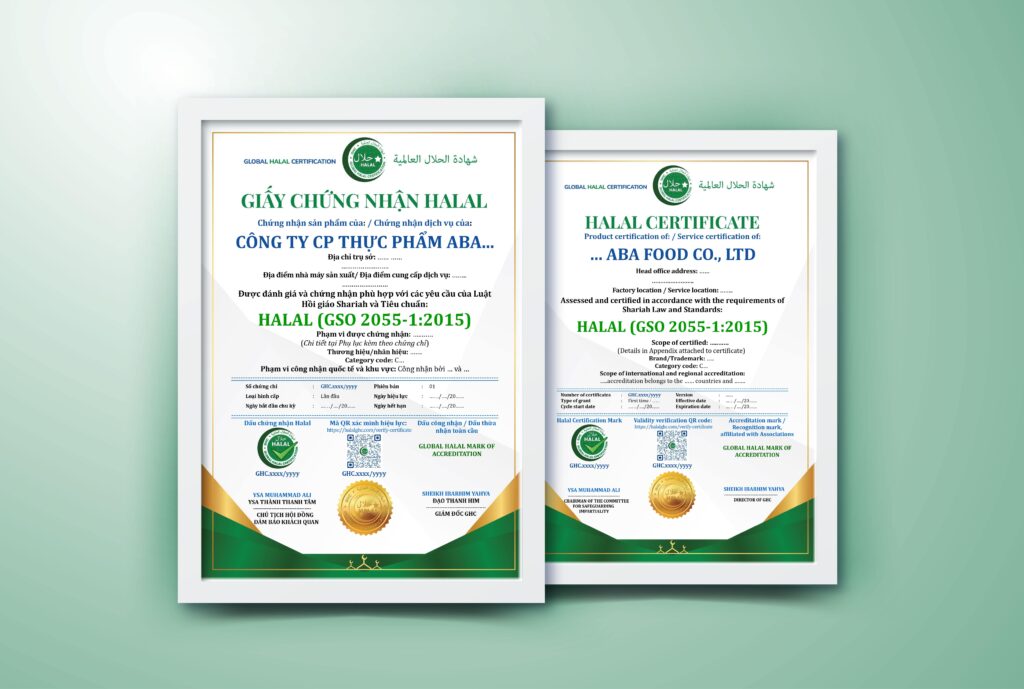TABLE OF CONTENT
What is Halal Certification for Food Additives, Flavors, and Spices?
Halal Certification for Food Additives
Food additives are substances added to food to preserve, color, flavor, or improve texture. To achieve Halal certification, food additives must meet the following criteria:
Ingredient Composition: The additives must not contain any Haram (prohibited) ingredients, such as alcohol, gelatin from animals not slaughtered according to Islamic rituals, or any pork-derived components.
Material Origin and Production Process: Manufacturers must ensure that the entire production process, from raw materials to the final product, is free from contamination with Haram substances. This includes verifying the source of ingredients and adhering to strict hygiene standards during production.
Halal Certification for Food Flavors
Food flavors are used to impart specific aromas to food. To obtain Halal certification, flavors must comply with the following standards:
Source of Ingredients: Flavors must be extracted from non-Haram sources. Alcohol, commonly used in flavor extraction, must be replaced with alternative methods or permissible types of alcohol under Shariah law.
Production Process: The flavor production process must follow Halal standards, ensuring no cross-contamination with Haram substances. Equipment and tools used during production must be thoroughly cleaned and not used for Haram products.
Halal Certification for Food Spices
Spices are substances used to enhance the flavor of food. To achieve Halal certification, spices must adhere to the following criteria: Ingredients: Spices must be made from Halal ingredients, including herbs, spices, and additives free from Haram components.
Production Process: The spice production process must ensure no cross-contamination with Haram substances. Manufacturers must follow strict food safety and hygiene standards.
Benefits of Obtaining Halal Certification for Food Additives, Flavors, and Spices
1. Market Expansion and Export Opportunities
Islamic countries represent a significant portion of the global market, with over 1.8 billion consumers. Having Halal certification helps businesses access and expand in these markets, particularly in countries like Malaysia, Indonesia, Saudi Arabia, and the Middle East. Halal certification is not only crucial in Islamic countries but also a requirement in many others for food imports, enhancing export opportunities and market diversification.
2. Enhancing Reputation and Trust
Halal certification demonstrates a company’s commitment to quality and food safety. It helps enhance brand reputation and distinguishes the business from competitors.
3. Compliance with International Food Safety Regulations
Halal certification requires companies to comply with strict food safety and hygiene standards. This ensures adherence to Islamic regulations and compliance with international food safety standards such as ISO, HACCP, and GMP.
4. Reducing Legal Risks
Having Halal certification helps businesses minimize legal risks related to violations of food safety regulations in target markets.
5. Improving Product Quality
The Halal certification process requires rigorous checks on the quality and origin of ingredients. This helps improve product quality and makes it stand out to consumers.
6. Increasing Revenue and Profit
By expanding markets and enhancing brand reputation, businesses can increase revenue from Halal-certified products. Halal products often carry a premium due to their adherence to special standards and high market demand, resulting in higher profitability.
GHC – Leading Halal Certification Body
Why Choose Halal Certification by GHC?
– GHC Halal provides global Halal certification services through internationally recognized certificates from GAC (GCC Accreditation Center) and is affiliated/accepted by Islamic councils/communities/associations both domestically and internationally.
– The Halal certificates issued by GHC’s affiliated partners are globally recognized and widely accepted around the world.
– The team of Halal experts across Vietnam ensures convenient service.
– Optimal and fastest Halal certification time, allowing businesses to obtain Halal certification within 15-20 days.
– All-inclusive costs with no additional travel expenses, and no requirement for businesses to transport auditors to the evaluation site.

Steps to Obtain Halal Certification for Food Additives, Flavors, and Spices
- Step 1: Training
Conduct awareness training on Halal standards for the products to be certified, including additives, flavors, and spices.
- Step 2: Developing a Halal Assurance System
Businesses either develop their own or hire a qualified independent consultant to build a quality assurance system based on Halal standards.
- Step 3: Certification Application
Submit the Halal certification application along with the necessary documents.
- Step 4: Preliminary Assessment – Stage 1
The certification body conducts a Stage 1 preliminary assessment at the office, reviewing registered documents and readiness for the official evaluation.
- Step 5: Official Assessment – Stage 2
The certification body conducts Stage 2 official certification assessment at the production site.
- Step 6: Evaluation Review and Certification Issuance
The certification body reviews the evaluation documents and issues certification if the facility meets Halal standards.
Note: Businesses that have completed training and construction of the Halal Assurance System only need to proceed from Step 3 to be evaluated and certified. Certification time: 15-20 working days from the date the customer submits complete certification registration information and evaluation and appraisal results in accordance with the requirements of standards and accreditation organizations.
FAQs on Halal Certification
1. How to Verify the Validity of Halal Certification?
– Customers can read the above analysis by GHC Halal to gain sufficient knowledge to distinguish the validity and value of the certification.
– For further verification, companies can contact GHC Halal via email at certify@halalghc.com or directly verify on the website at https://en.halalghc.com/verify-certificate.
2. What Makes a Halal Certification Valid?
Refer to the article: …
GHC GLOBAL HALAL CERTIFICATION COMPANY LIMITED
Head Office in Ho Chi Minh City
Address: No. 2B3, Street 22, Quarter 4, Hiep Binh Chanh Ward, Thu Duc City, Ho Chi Minh City
Phone: 097.628.3553
Email: hcm.vn@halalghc.com
Business coordination location in Da Nang
Address: 109 Huy Can, Hoa Cuong Nam Ward, Hai Chau District, Da Nang City
Phone: 097.628.3553
Email: danang.vn@halalghc.com
Business coordination location in Hanoi
Address: 2nd Floor, No. H2, Alley 88 Trung Kinh, Group 38, Yen Hoa Ward, Cau Giay District, Hanoi City, Vietnam
Phone: 097.628.3553
Email: hanoi.vn@halalghc.com











